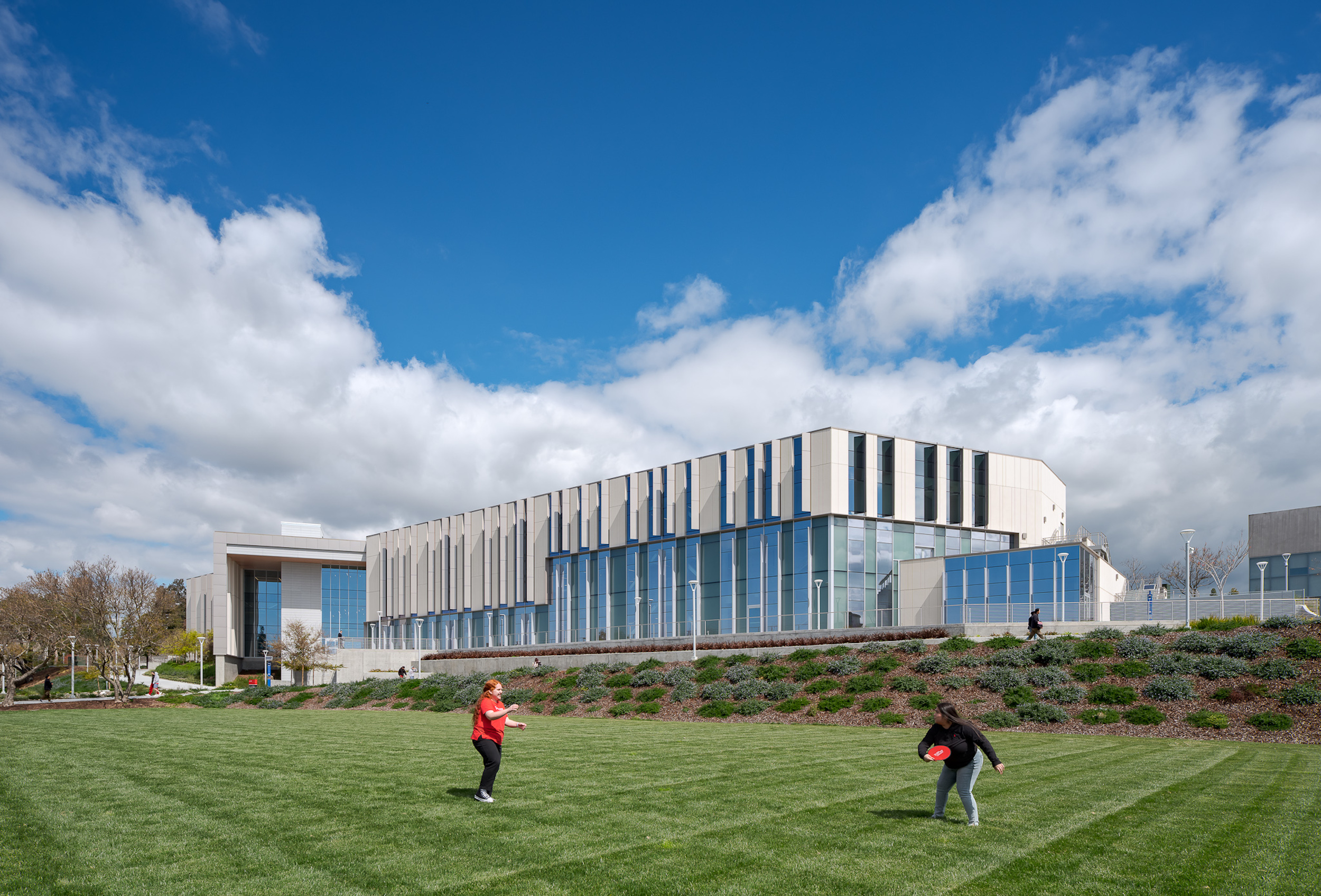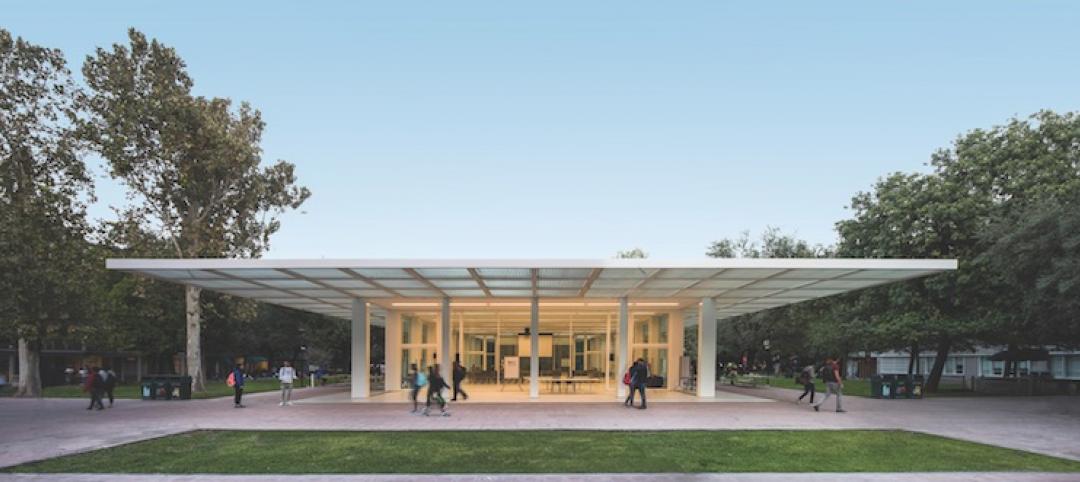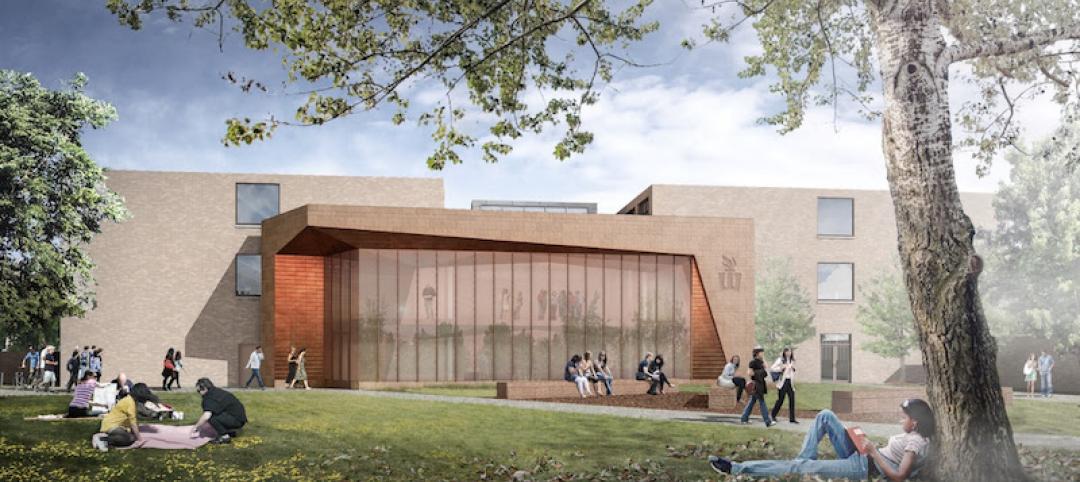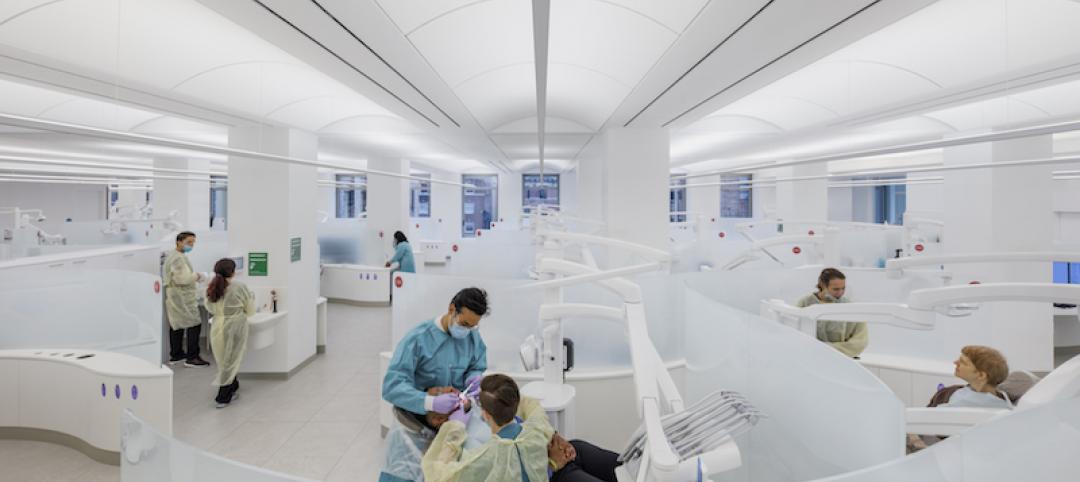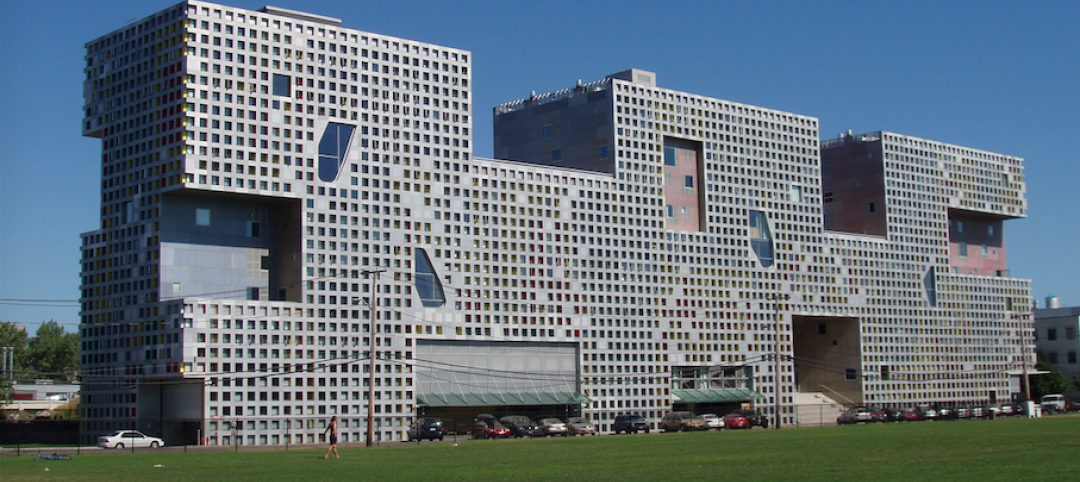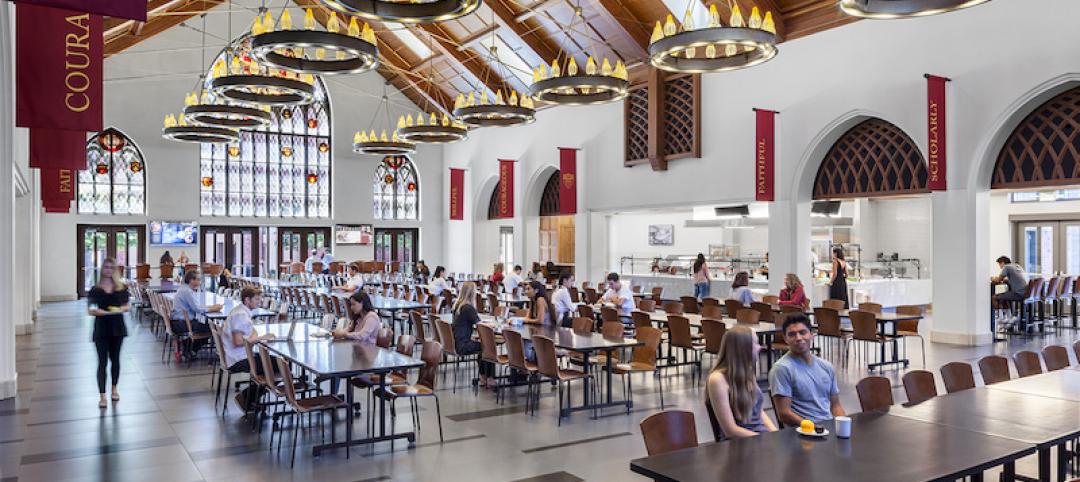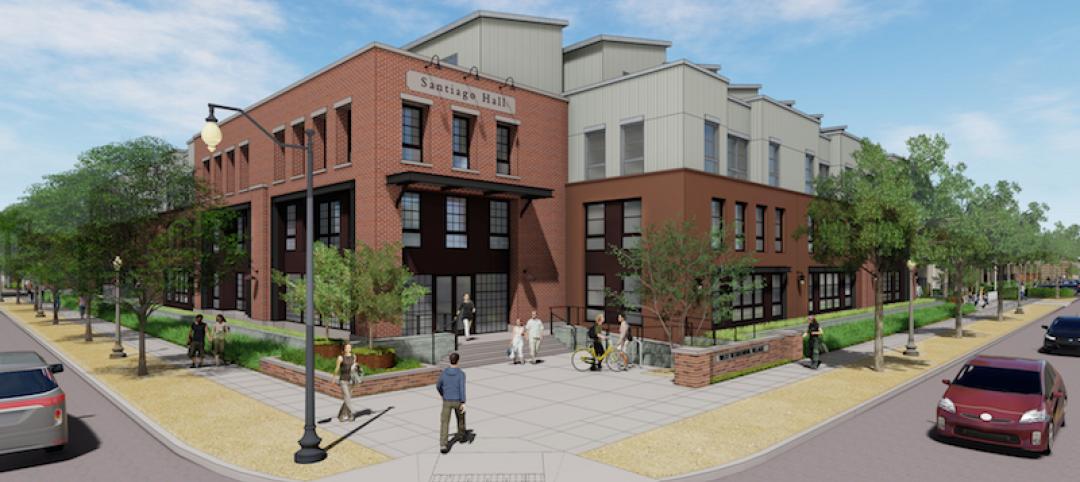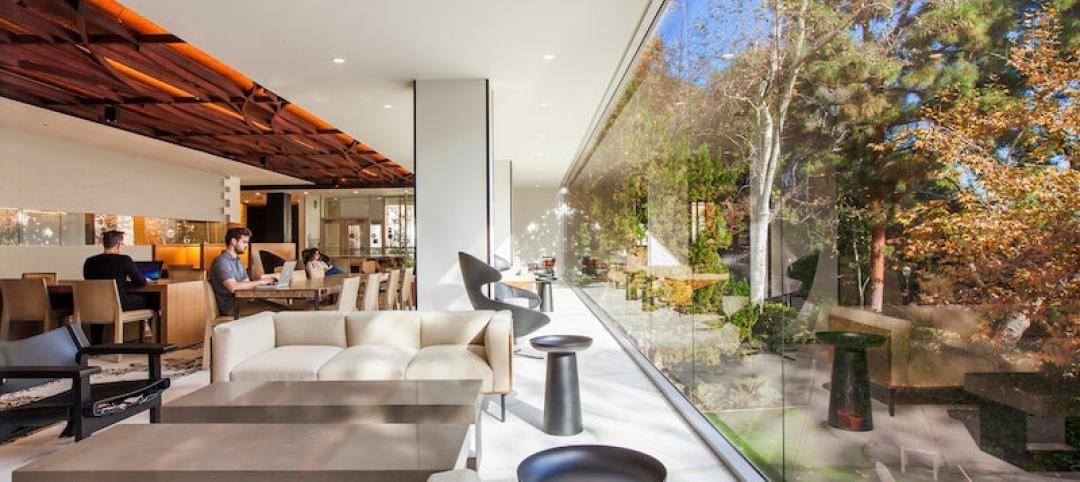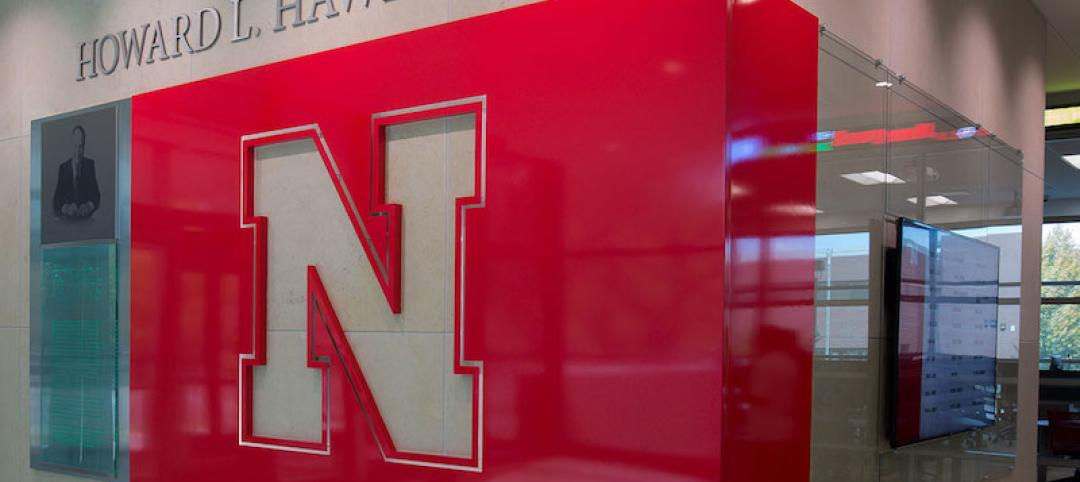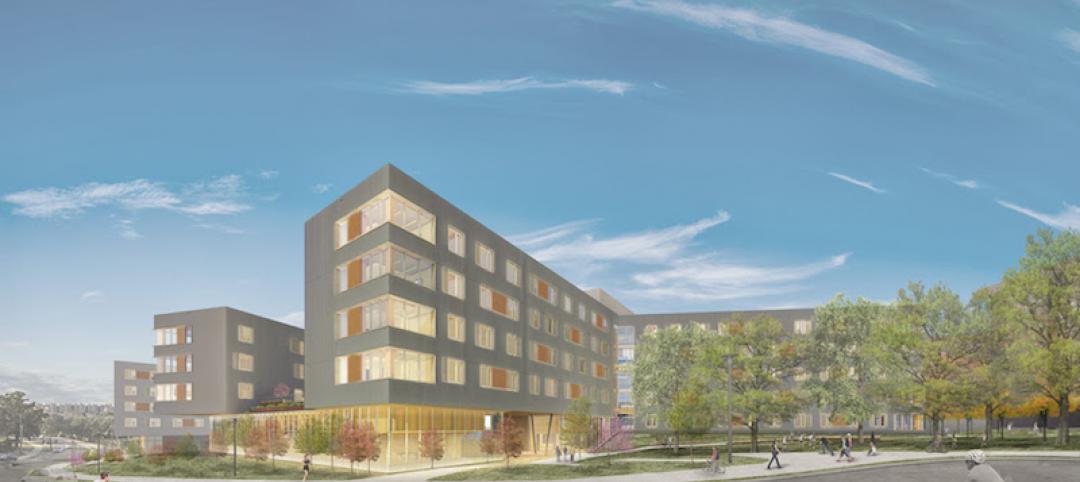A three-story “library-plus” building at California State University, East Bay (CSUEB) that ties together the upper and lower campuses was recently completed. The 100,977-sf facility, known as the Collaborative Opportunities for Research & Engagement (“CORE”) Building, is one of the busiest libraries in the CSU system. The previous library served 1.2 million visitors annually.
The new building offers students 700 more seats and 21 more group study rooms than the facility it replaced. Much more than a library, CORE brings traditional library services together with learning, innovation, and technology; collaboration and engagement; and social justice, diversity and sustainability.
It houses the Student Center for Academic Achievement (SCAA—for peer tutoring and study groups) and the Hub for Entrepreneurship, both of which help students become self-directed learners in the Information Age economy.
Equipped with state-of-the-art information and audio-visual technologies, the building provides diversity of spaces to support study rooms and collaborative commons along with multimedia production and library spaces for print and digital collections, archives, and special collections.
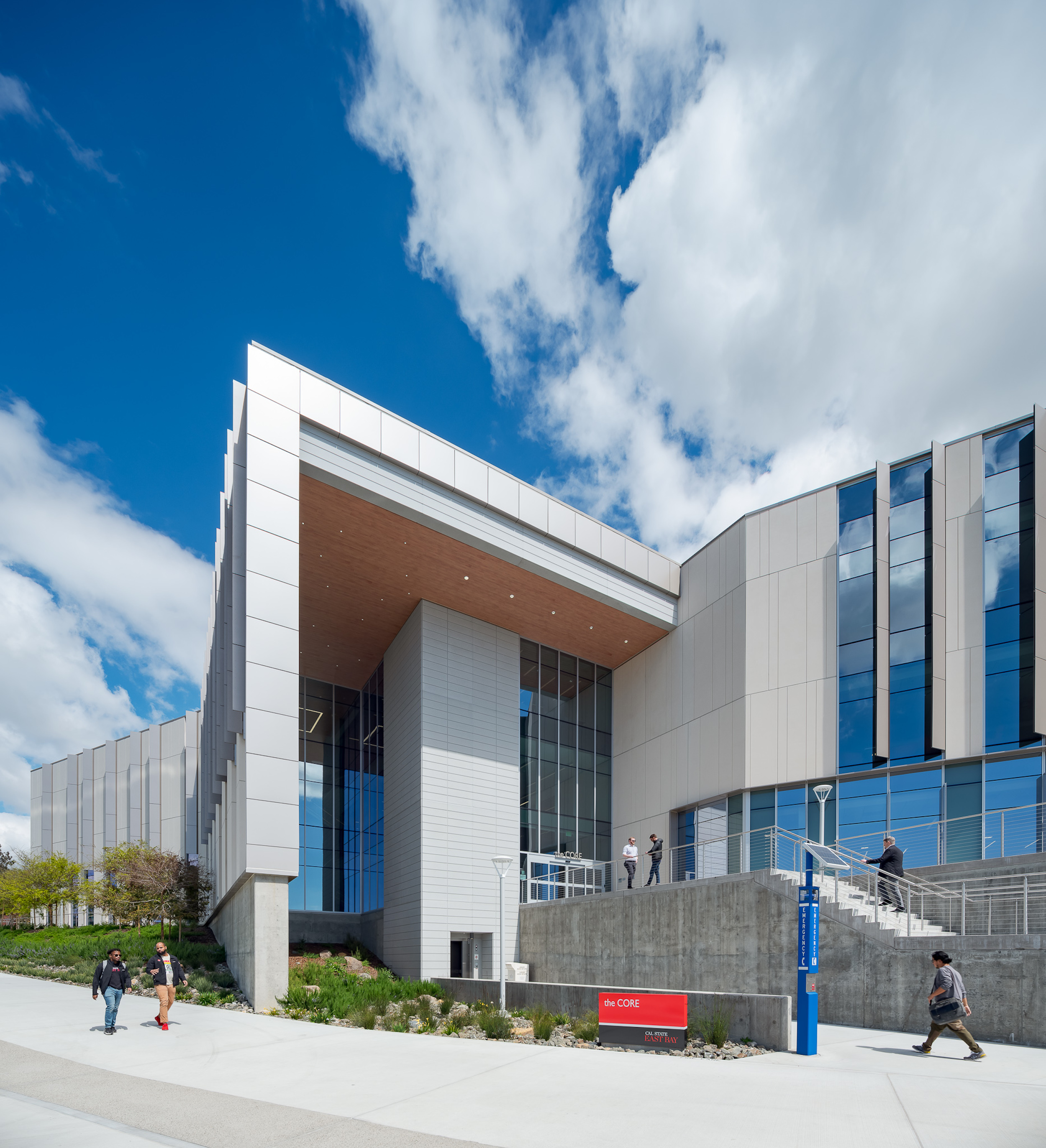
Generous open space and fenestration help knit the interior into a cohesive sum of many essential parts. In anticipation of earning LEED Gold certification, the building’s HVAC system aims for healthy indoor air quality, high levels of user controllability, and exceptional energy efficiency.
Each of CORE’s three stories offers a different approach to learning designed to help develop lifelong skills. The library is on Level Two. Level One houses a collaboration zone and innovation labs. Level Three is home to the SCAA and a roof deck provides an additional place for quiet study.
The visual dialogue within the building’s interior emphasizes the relationship between spaces that serve both the academic and social needs of students. CORE’s structure and functionality were designed to help CSUEB hone a distinct identity in the Bay Area’s rich educational landscape and enable it to be viewed as something more than a “commuter school.”
On the building team:
Owner and/or developer: California State University, East Bay
Architect of record, design architect: Carrier Johnson + Culture (Exterior)
Associate Architect: Anderson Brulé Architects (Interior)
MEP engineer: Integral Group
Structural engineer: Forell/Elsesser Engineers
General contractor/construction manager: Rudolph and Sletten
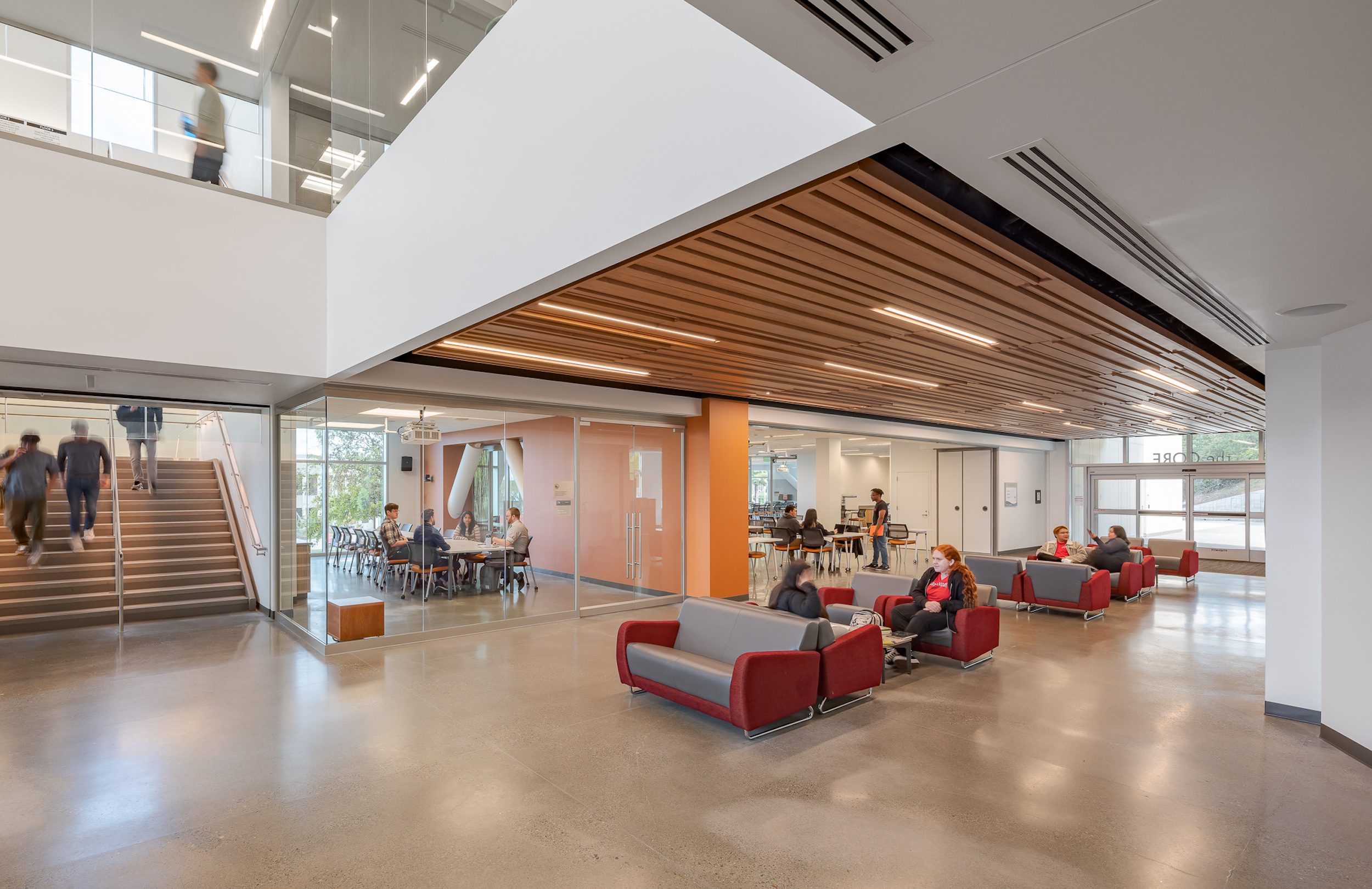
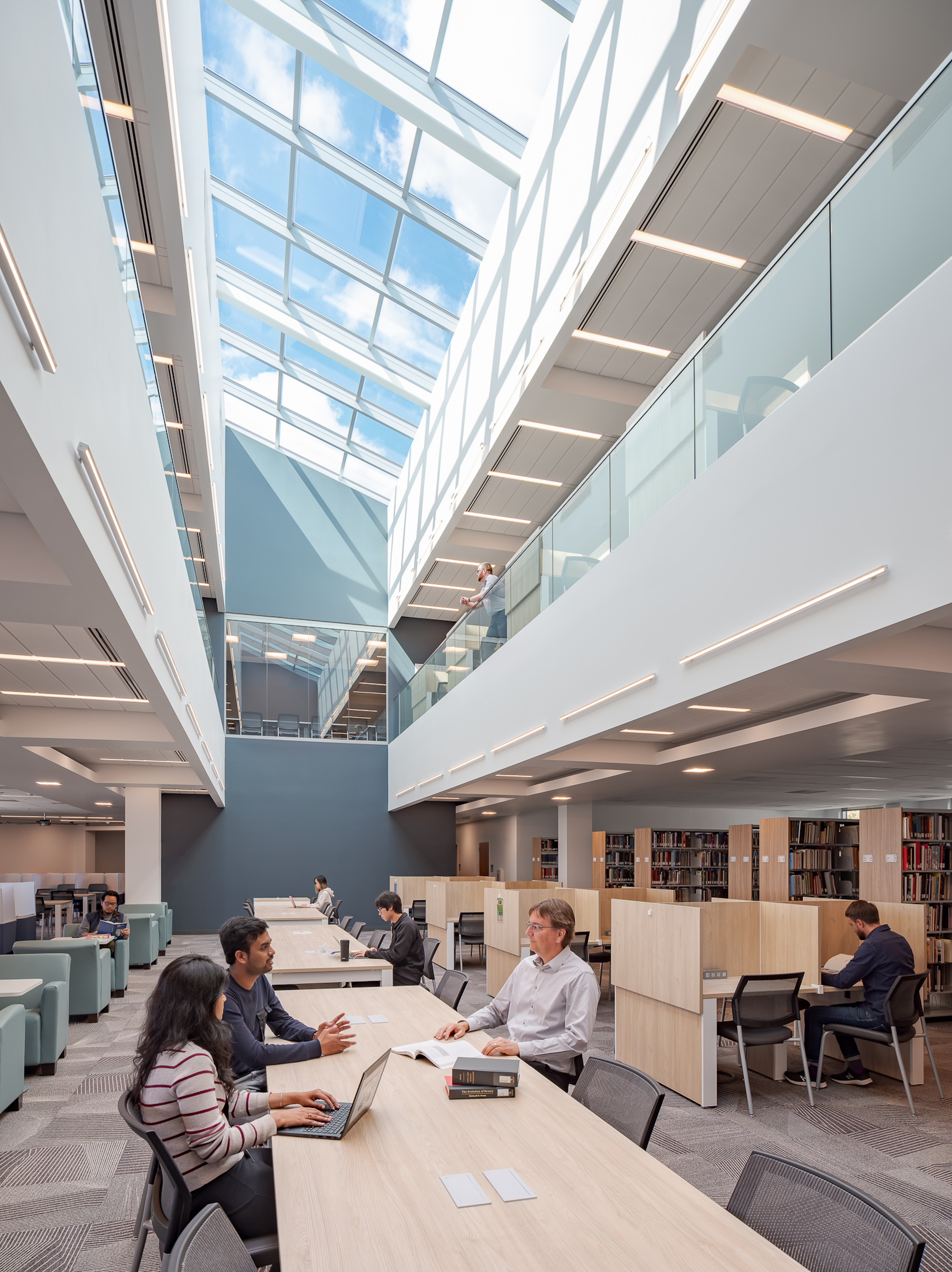
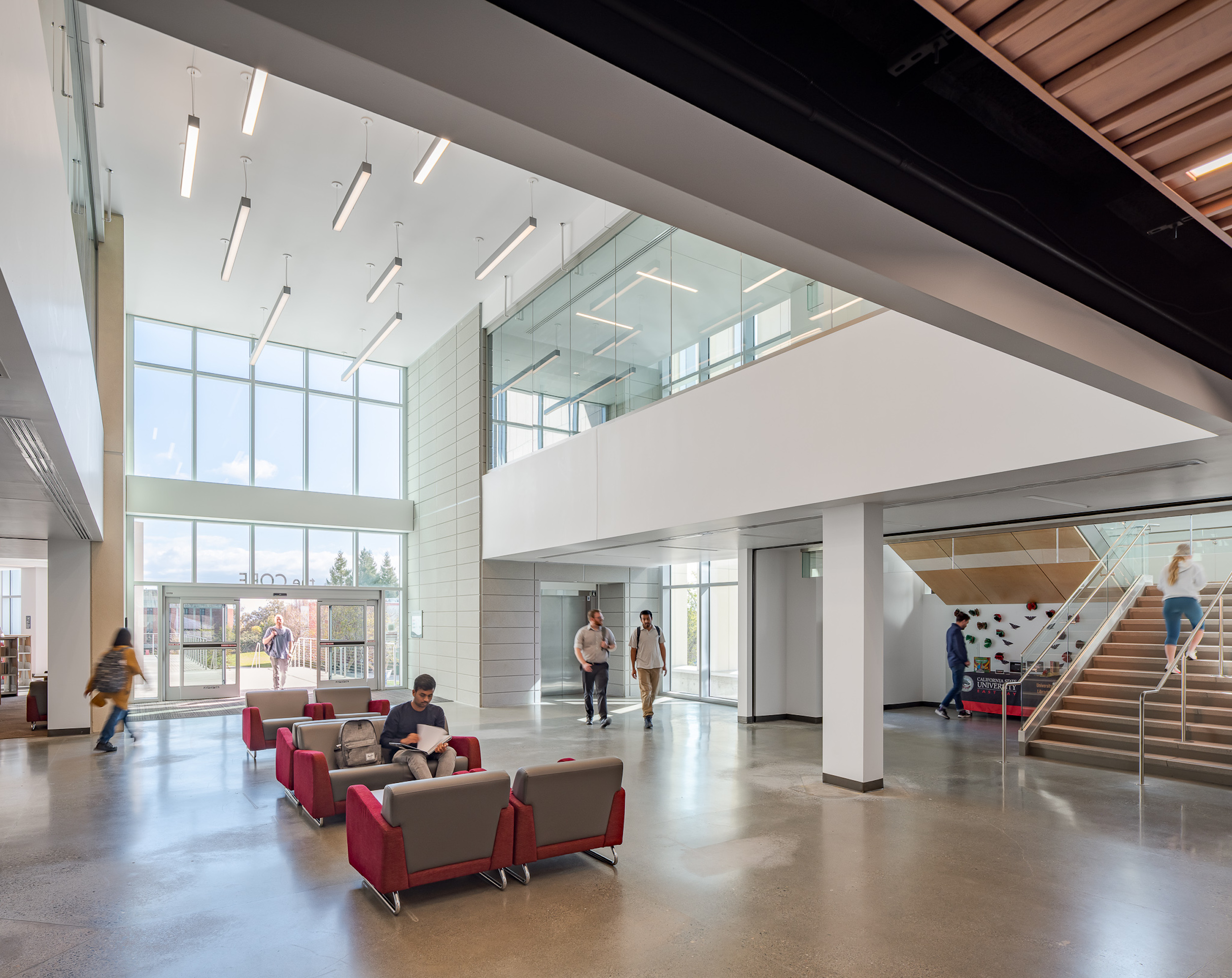
Related Stories
Game Changers | Jan 12, 2018
‘Kit of parts’ anchors university’s remake
Sasaki designs interchangeable spaces to support a major educational shift at Mexico’s largest university system.
Education Facilities | Jan 8, 2018
Three former school buildings are repurposed to create mini-campus for teacher education
The $25.3 million project is currently under construction on the Winona State University campus.
Healthcare Facilities | Jan 6, 2018
A new precision dental center embodies Columbia University’s latest direction for oral medicine education
The facility, which nests at “the core” of the university’s Medical Center, relies heavily on technology and big data.
Big Data | Jan 5, 2018
In the age of data-driven design, has POE’s time finally come?
At a time when research- and data-based methods are playing a larger role in architecture, there remains a surprisingly scant amount of post-occupancy research. But that’s starting to change.
Mixed-Use | Jan 5, 2018
USC Village is the largest development in the history of the University of Southern California
USC Village comprises six buildings and 1.25 million sf.
Adaptive Reuse | Jan 4, 2018
Student housing development on Chapman University campus includes adaptive reuse of 1918 packing house
The Packing House was originally built for the Santiago Orange Growers Association.
University Buildings | Dec 20, 2017
New residence hall to house 500 students at Duke University
The project was designed by William Rawn Architects and will be built by Skanska.
University Buildings | Dec 5, 2017
UCLA’s Hedrick Study combines a library, lounge, and dining hall
Johnson Favaro designed the space.
University Buildings | Dec 4, 2017
The University of Nebraska’s new College of Business building highlights entrepreneur alumni and corporate leaders
Numerous storytelling spaces and displays are located throughout the building.
Wood | Nov 30, 2017
The first large-scale mass timber residence hall in the U.S. is under construction at the University of Arkansas
Leers Weinzapfel Associates, Modus Studio, Mackey Mitchell Architects, and OLIN collaborated on the design.


